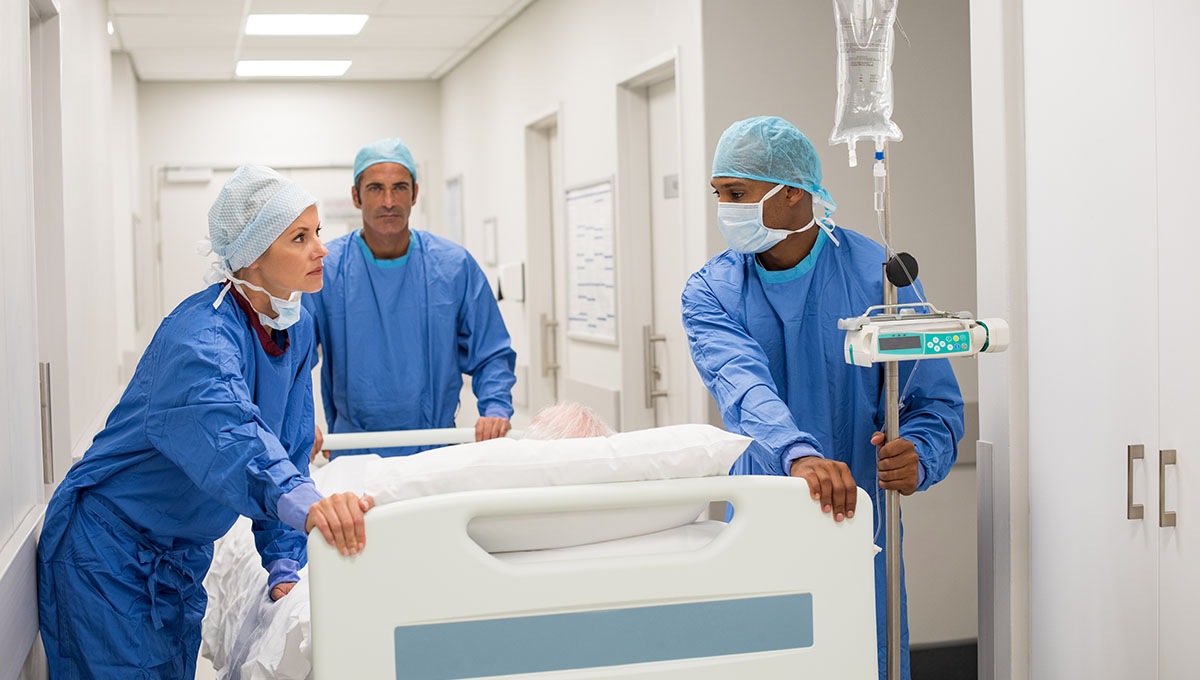- Karen Russell ’06 Named Finalist for National Book Award Columbia School of the Arts
- 2025 National Book Awards Finalists Announced nationalbook.org
- Omar El Akkad’s book, One Day, Everyone Will Have Always Been Against This, finalist in National…
Blog
-
Karen Russell '06 Named Finalist for National Book Award – Columbia School of the Arts
-

Tucatinib Regimen Improves PFS in HER2+ Metastatic Breast Cancer
The addition of tucatinib (Tukysa) to maintenance therapy with trastuzumab (Herceptin) and pertuzumab (Perjeta) displayed a statistically significant improvement in progression-free survival (PFS) vs placebo as a first-line treatment for patients with HER2-positive metastatic breast cancer, according to a news release from the drug’s developer, Pfizer Inc.1
The investigational agent was assessed in combination with trastuzumab and pertuzumab across the aforementioned patient population in the
phase 3 HER2CLIMB-05 trial (NCT05132582) . The trial met its primary end point of PFS per investigator assessment, and the tucatinib-based regimen was well-tolerated, with the safety profile consistent with the established profiles of each individual agent.“[HER2-positive] breast cancer is a particularly challenging subtype, with many patients experiencing disease progression despite effective treatments in the first-line setting,” Erika Hamilton, MD, principal investigator of HER2CLIMB-05 and director of Breast Cancer Research at the Sarah Cannon Research Institute (SCRI), stated in the news release on the study findings.1 “The [phase 3] HER2CLIMB-05 results demonstrate that the addition of [tucatinib] to first-line maintenance therapy may further lower the risk of disease progression or death, with a treatment that has a well-established safety profile.”
The double-blind phase 3 trial enrolled patients with HER2-positive metastatic breast cancer following taxane-based induction therapy. Those who completed induction therapy with trastuzumab, pertuzumab, and a taxane with no evidence of disease progression were randomly assigned 1:1 to receive tucatinib (n = 326) or placebo (n = 328) plus trastuzumab and pertuzumab as maintenance.
Patients in both arms received trastuzumab at 6 mg/kg intravenously or 600 mg subcutaneously plus pertuzumab at 420 mg intravenously every 21 days as maintenance therapy.2 Those in the investigational arm received tucatinib at 300 mg orally twice daily every 21 days, with those in the control arm receiving matching placebo.
The primary end point of the trial was investigator-assessed PFS. Secondary end points included overall survival, PFS per blinded independent central review, central nervous system PFS, health-related quality of life, and adverse effects (AEs).2
Warnings and precautions of treatment with tucatinib include severe diarrhea, dehydration, hypotension, acute kidney injury, and death. Additionally, patients may be at risk of hepatotoxicity, including alanine aminotransferase increases, aspartate aminotransferase increases, and bilirubin increases. Furthermore, tucatinib may cause embryo-fetal toxicities among patients who are pregnant or of reproductive potential.
In the phase 3 HER2CLIMB trial (NCT02614794), serious AEs were reported in 26% of the tucatinib arm, the most common of which included diarrhea (4%), vomiting (2.5%), nausea (2%), abdominal pain (2%), and seizure (2%). The most common fatal AEs included sudden death, sepsis, dehydration, and cardiogenic shock.
Dose reductions related to AEs occurred in 21% of patients, the most common of which were hepatotoxicity (8%) and diarrhea (6%).
Currently, tucatinib is approved for the treatment of patients with HER2-positive metastatic breast cancer in the third-line setting in the US as well as more than 50 countries. Additionally, it is approved by the FDA when used in combination with trastuzumab and capecitabine in adult patients with advanced unresectable or metastatic HER2-positive disease who received at least 1 prior HER2-based treatment in the metastatic setting in April 2020.3
“The positive results from HER2CLIMB-05, combined with [tucatinib’s] known safety profile in later-line settings, underscore its potential to play a meaningful role in front-line maintenance, where it may benefit a broader population of patients with [HER2-positive] disease,” Johanna Bendell, MD, chief development officer of Oncology at Pfizer, expressed in the news release.1 “We are grateful to the patients and investigators who contributed to this important research.”
References
- TUKYSA combination significantly improves progression-free survival as first-line maintenance in HER2+ metastatic breast cancer in HER2CLIMB-05 trial. News release. Pfizer Inc. October 14, 2025. Accessed October 14, 2025. https://tinyurl.com/3xc5xb5d
- A study of tucatinib or placebo with trastuzumab and pertuzumab for metastatic HER2+ breast cancer (HER2CLIMB-05). ClinicalTrials.gov. Updated October 14, 2025. Accessed October 14, 2025. https://tinyurl.com/3w2d454n
- FDA approves tucatinib for patients with HER2-positive metastatic breast cancer. News release. FDA. April 17, 2020. Accessed October 14, 2025. https://tinyurl.com/ppzb6mnx
Continue Reading
-

Cleveland Clinic Life Science Summit Held in London
London: Cleveland Clinic brought together global leaders in biotechnology, healthcare, academia, government and industry at today’s Life Science Summit to explore the transformative forces shaping the future of therapeutics.
During the international event – held at the Lanesborough Hotel near Cleveland Clinic London – Cleveland Clinic leaders also announced several new or expanded collaborations and shared details about Cleveland Clinic London’s new cancer centre.
The summit highlighted advancements in areas such as AI-driven drug discovery, personalized medicine and cancer treatments, offering attendees unique insights into the science, strategy and societal impact of modern medicine. With a dynamic mix of keynote addresses, scientific presentations and panel discussions, the event was designed to foster collaboration and highlight opportunities to fast-track the translation of research into transformative therapies.
“The Life Science Summit reflects our commitment to advancing medicine across the globe through innovation and collaboration,” said Tom Mihaljevic, M.D., CEO and President of Cleveland Clinic and holder of the Morton L. Mandel CEO Chair. “By bringing together international leaders from across disciplines, we aim to foster meaningful dialogue and accelerate progress in developing treatments that improve the lives of patients around the world.”
Panel discussions focused on topics such as AI, precision medicine, and next-generation therapies, as well as trends in life sciences investment. Highlighted sessions included:
- Leveraging AI in Therapeutics: Use of generative models, automation and real-world data, as well as challenges like data quality, regulation and ethics. The session highlighted the importance of cross-sector collaboration in harnessing AI’s potential in transforming therapeutics.
- Therapeutics in Oncology: Key trends shaping cancer therapeutics, highlighting innovation, translation and clinical impact. Experts from academia, biotech and healthcare discussed breakthroughs, emerging targets and strategies to accelerate new treatments.
- Future of Tailored Therapeutics: A discussion on how genomics, AI and tailored therapeutics are advancing healthcare with precise diagnostics, personalized treatments and improved patient outcomes.
- Investors Forum: Insights into life sciences IPOs and the rising demand for breakthrough therapies and precision medicine.
- Biotech in Britain: A look at innovation, investment and policy fueling the UK’s biotech sector.
The summit also featured a Cleveland Clinic Portfolio Showcase, highlighting cutting-edge therapies and technologies being developed through Cleveland Clinic Innovations.
Other new partnerships and updates were shared during the event and highlighted Cleveland Clinic’s steadfast progress in expanding state-of-the-art clinical care and robust life sciences research in the UK. These included:
- New collaboration with Khosla Ventures: Cleveland Clinic and Khosla Ventures announced a strategic collaboration that connects the international health system with one of Silicon Valley’s leading investors in healthcare and technology. The new relationship combines the organizations’ unique strengths, aiming to reimagine healthcare delivery and create solutions that address some of the most pressing challenges in the field.
- Expanded collaboration with LifeArc: Building on a successful relationship since 2019, Cleveland Clinic and LifeArc, a UK-based self-funded medical research organisation, have identified new areas of mutual interest and will work together to drive innovation in key fields, including the development of new monoclonal antibody-based treatments and the provision of continuous education to clinician scientists. Through this new agreement, the organizations aim to create a robust pipeline for translating laboratory discoveries into life-changing treatments for patients.
- Discussion of cancer services in London with the construction of new cancer centre: As the latest Cleveland Clinic London location, offering one of the most comprehensive cancer programs in the UK Independent market, the new cancer centre will deliver the most advanced treatments. Multidisciplinary cancer care will include surgical oncology, medical oncology and haematology including systemic cancer therapies, such as immunotherapy, chemotherapy, targeted therapies and radiotherapy tailored to each patient. Construction is slated to begin in the fourth quarter of 2025, with completion anticipated by the end of 2027.
As part of a global research enterprise, Cleveland Clinic London has made clinical research an integral component of daily operations, achieving several firsts in the UK private healthcare sector. Currently, 46 investigator-sponsored and commercial studies are open across all major specialties, with over 1,000 patients recruited to clinical trials by the end of 2024, including NHS portfolio multicentre studies. Additionally, Cleveland Clinic London caregivers authored more than 1,100 peer-reviewed papers in 2024.
Building on Cleveland Clinic’s partnership with IBM and the Science and Technology Facilities Council, Cleveland Clinic London is advancing AI-driven research to improve patient outcomes. In a pilot study, a research team is examining how common hospital procedures impact overall health and quality of life. Researchers are using clinical and advanced imaging data provided by Cleveland Clinic London BioResource, a repository which provides patients with the opportunity to consent to enhanced longitudinal data collection and analysis. Researchers aim to develop sophisticated AI models for multi-disease analysis, ultimately enhancing understanding and care for patients.
The Life Science Summit was supported by sponsorships from AstraZeneca, Bank of America, and Flagship Pioneering, as well as Jones Day and LifeArc.
Continue Reading
-

Partnering with Flow: The Agile Hardware Future
The American hardware industry is undergoing a renaissance. New players are emerging across aerospace, automotive, defense, and beyond—and they must iterate more quickly, and with more complexity, than ever before. Just as software developers needed new tools to move from a waterfall framework to the more flexible agile approach, hardware now needs a different type of collaborative platform—one that can instantly align requirements across systems to build safely, reliably, and quickly.
That’s why Flow Engineering is poised to have a generational impact.
Whether it’s an electric vehicle, a rocket, or a robot, building complex hardware requires full context throughout the system: changing the thermal parameters for a single component, for example, can have a ripple effect through the rest of the design. But the legacy products used to track these requirements are clunky artifacts of a bygone era and simply don’t measure up. Engineers are reluctant to use them, and they make development cycles, already famously long in hardware, even longer.
Today’s electric vehicles have more in common with computers than internal combustion vehicles. And Flow founder Pari Singh knows that, like software, hardware’s future is agile. His insights are making Flow the default requirements management platform for the next generation of hardware companies.
Built specifically for agile hardware teams, Flow serves as a modern system of record, automatically verifying changes and propagating them downstream. Its magic lies in the collaboration it enables. Flow feels natural and intuitive for systems engineers and their domain-specific colleagues alike, and integrates with a full suite of engineering tools. Teams can break down silos and iterate continuously, working together and with outside partners in real time, all from a single source of truth. As with software development, these shorter feedback loops dramatically reduce time to market—which gives Flow’s customers a critical competitive advantage.
Born and raised in London and obsessed with engineering from a young age, Pari was a 22-year-old Imperial College graduate when he launched a design consultancy for hybrid rocket engines. He built a tool to do in two hours what took others twelve weeks. This led to the innovative idea behind Flow. As we at Sequoia have gotten to know Pari, we’ve found him to be clear-thinking, driven, and resilient. He is also relentless in his pursuit of top talent and building a truly special team—which is fortunate given the company’s rapid growth.
Flow is working with top companies across space, defense, nuclear, aero, and robotics, including Rivian, Joby, Astranis, and Radiant Nuclear. As this next generation of hardware businesses continues to scale, we at Sequoia are pleased to lead the Series A to help Flow accelerate their success. The team is hiring now both in London and at their new HQ in San Francisco.
Through the combined effort of systems engineers and their colleagues, a collection of pumps, valves, and pipes can become a spaceship—and the future of hardware engineering itself will require the same kind of extraordinary collaboration. In this industry-wide effort to build the hardware of tomorrow, we believe Pari and the team at Flow are leading the way.
Continue Reading
-

Google’s AI Assistant Is Ready to Take Over Your Calendar and Schedule Your Meetings
Google is rolling out a new Gemini-powered scheduling feature designed to eliminate one of the most universal workplace frustrations: finding a meeting time that actually works.
Don’t miss any of our unbiased tech content and lab-based reviews.
Continue Reading
-

Brittany pops off on Dwayne 'The Rock' Johnson : It's Been a Minute – NPR
- Brittany pops off on Dwayne ‘The Rock’ Johnson : It’s Been a Minute NPR
- From Popcorn to Prestige: Adam Sandler, Dwayne Johnson and Jennifer Lopez Hope to Rewrite Their Oscar Stories Variety
- The Smashing Machine Thinks It’s Too Cool for a…
Continue Reading
-

Google Meet launches an AI-powered makeup feature
Google Meet finally has an AI-powered makeup filter for those days when you don’t feel like applying real makeup before a meeting. The new capability will help Google Meet compete with other video-conferencing apps that already have virtual…
Continue Reading
-

ICC Women’s Cricket World Cup 2025: Rain denies Sri Lanka chance of victory over New Zealand
Sri Lanka and New Zealand were forced to settle for a point each after their Women’s World Cup match in Colombo was abandoned because of rain.
Co-hosts Sri Lanka had racked up 258-6 after opting to bat first, thanks to the fastest fifty of the…
Continue Reading
-

You can test Microsoft’s new in-house AI image generator model now – here’s how
Screenshot by Lance Whitney/ZDNET Follow ZDNET: Add us as a preferred source on Google.
ZDNET’s key takeaways
- Microsoft is now testing its own in-house AI image generation model.
- You can test the new model at the LMArena leaderboard site.
- The…
Continue Reading
-

Percutaneous LVADs Can Spur Aortic Regurgitation, Small Study Cautions
Large-bore devices and longer time on support each up the risk. A study author calls for awareness, not alarm.
For some patients, a percutaneous left ventricular assist device (LVAD) may increase the risk of subsequent aortic…
Continue Reading